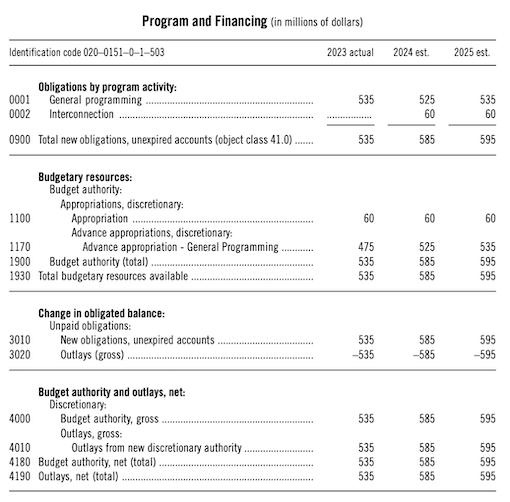Yesterday, President Trump issued an executive order to the Board of the Corporation for Public Broadcasting, directing the Board not to fund National Public Radio (NPR) or the Public Broadcasting Service (PBS). The order makes the policy case for defunding these organizations, with which I agree. One should note, however, that NPR and PBS, as well as their local affiliates, receive only a small percentage of their revenue from the federal government, so they will continue to operate regardless of Trump’s order.
This order, like several others Trump has issued, raises the issue of how control over spending is divided between Congress and the President under Articles I and II of the Constitution.
Trump’s argument would be that he runs (under Article II, he is) the Executive Branch, and therefore he can direct the Board of the Corporation for Public Broadcasting as to how to spend its money. In this instance, his order functions much like a line-item veto–a power which, I believe, most governors enjoy, but which the President has not traditionally been viewed as possessing.
One obvious question is, has Congress specifically authorized money to go to NPR or PBS? I searched the 2025 federal budget for references to the Corporation, and found this:
While I am no expert on the federal budget, it appears that Congress has simply allocated money to CPB and left the distribution of that revenue to CPB’s discretion. That supports the idea that the President, as head of the Executive Branch, can direct the CPB’s Board not to fund NPR and PBS. On the other hand, the vast majority of CPB’s spending goes to NPR and PBS, and Congress obviously intended that it do so when it appropriated around a half-billion dollars to CPB for the current fiscal year.
It remains to be seen how the Supreme Court will ultimately sort out the constitutional issues relating to spending. Remarkably, in our more than 200-year history the Court seems not to have resolved the questions surrounding this important subject. (Contrary to what is sometimes alleged, in the Train case the parties apparently never made any constitutional claims, and the Court did not address any constitutional issue.) Intuitively, I think the President’s position will be strongest when he withholds or redirects spending because fraud or waste have been uncovered in a federal program, and weakest when he simply disagrees with a policy that Congress has adopted–here, funding public radio and television.

















